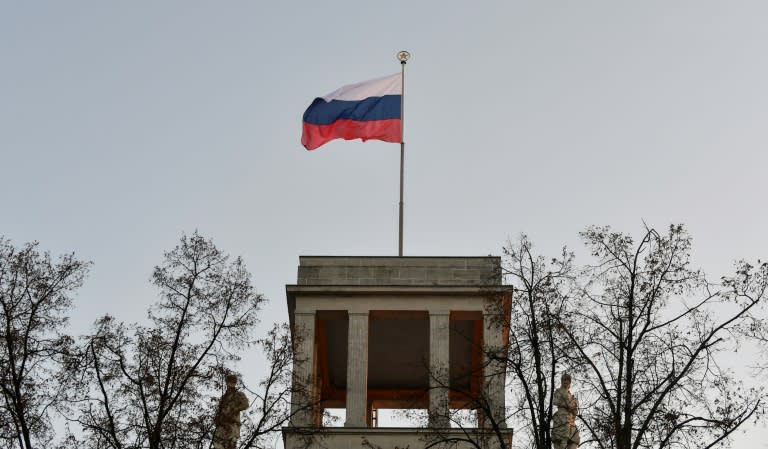German ex-soldier admits spying for Russia as trial opens

A German former soldier on Monday admitted he had spied for Russia at the start of his trial, saying he wanted to avoid the escalation of the war in Ukraine.
"It was wrong. I stand by that," said the defendant, named only as Thomas H., who is at the centre of one of several espionage cases uncovered in Germany since Russia's war on Ukraine in February 2022.
The 54-year-old is accused of passing on information from his post in the military procurement service.
Prosecutors say he photographed old training documents related to munitions systems and aircraft technology and dropped the material into the letterbox of the Russian consulate in Bonn.
The defendant "approached the Russian general consulate in Bonn and the Russian embassy in Berlin and offered his cooperation" in May 2023, prosecutors said.
"He passed on information he had obtained in the course of his professional activities for it to be passed on to a Russian intelligence service."
The defendant said that the accusations against him were "broadly" accurate.
He contested a claim by prosecutors that he transferred information to the Russian consulate on a CD.
Instead, he said, the documents had been printed out and contained "nothing bad".
The information was intended to confirm his status as a soldier, he added.
Thomas H. said his concern about a possible escalation in the war in Ukraine led him to reach out to the Russian side.
More precisely, he was worried about the possibility that deliveries of heavy weapons systems by Berlin to Ukraine would draw Germany into the conflict.
- 'Stupid idea' -
The risk has been cited by Chancellor Olaf Scholz in recent months as a reason for not sending longer-range missiles which Ukraine could use to strike targets within Russia itself.
The former soldier's aim was to obtain information before a possible nuclear escalation in the conflict in order to bring his family to safety in time, he said.
The apocalyptic concern was the reason he landed on the "stupid idea" to reach out to Russian authorities.
Thomas H. also indicated he had become dissatisfied with the government in Berlin and a perceived lack of concern for the safety of German citizens.
The suspect cited complaints over his health after many hard years working for the army and long-term side effects from the coronavirus vaccine.
His various worries led him into a "vicious circle", he said, adding that he could no longer justify his actions to himself.
Thomas H. is standing trial in the western city of Duesseldorf, with hearings set to last until late June.
Until his arrest, he had been a career soldier, working at the army's Equipment, Information Technology and In-Service Support Department.
The department, which has about 12,000 employees, has seen its workload increase substantially since the outbreak of the Ukraine war, as the government stages a wide-ranging overhaul of the army after years of neglect.
- Spying threat -
Media reports following his arrest suggested Thomas H. had access to sensitive information as the department he worked in counted among its tasks the procurement of modern systems for electronic warfare.
These included technology for the surveillance and disruption of opponents' radio systems and the shutting down of enemy radio or airshield systems.
Germany's domestic security agency, the BfV, warned last year of the risk of an "aggressive Russian espionage operation" against the backdrop of soaring tensions between the West and Moscow.
The latest example came just this month, when investigators arrested two German-Russian men on suspicion of spying for Russia and planning attacks in Germany -- including on US army targets -- to undermine military support for Ukraine.
A former German intelligence officer is on trial in Berlin, accused of handing information to Moscow that showed Germany had access to details of Russian mercenary operations in Ukraine. He denies the charges.
In November 2022, a German man was handed a suspended sentence for passing information to Russian intelligence while serving as a German army reserve officer.
German officials have pledged to take a hard line as spying cases surge. Scholz said this month that "we can never accept that espionage activities in Germany take place".
Last year, Berlin expelled several Russian diplomats for espionage, prompting the tit-for-tat expulsion of 20 German diplomats from Moscow.
Russian authorities for their part have levelled treason charges against dozens of people accused of aiding Ukraine and the West since the invasion.
tbh-sr-sea/hmn/tw

